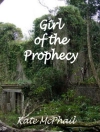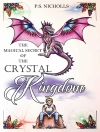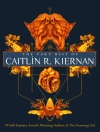The People’s Covenant and God’s Hammer have raged a Cold War that has lasted for over twenty years. A war without armies, where battles are fought in the dark and information is the most dangerous weapon.
In this world —which sometimes seems the Middle Ages, sometimes the Renaissance and sometimes the Nineteenth Century— lives Yáxtor Brandan, empirical adept at the service of the Queen of Alboné. A relentless, amoral and unscrupulous character, Yáxtor fights to recover his own past as he tries to prevent a new player in the espionage game to end the world, as he knows it.
A fascinating fast-moving and complex plot, full of tension and surprises and excellently paced; a main character for whom it should be impossible to feel the slightest sympathy, and yet somehow we do, even as his cruelty disturbs us more and more -an extremely difficult feat to pull off so successfully; powerful secondary actors, who either leave you with a sense of uneasiness with regard to their motivations and loyalties, or make you want to shout out -as people did in the early days of cinema- ‘Look out, don’t trust him!’; and a pervading atmosphere of tragedy, especially in a final unexpected and shocking, yet on reflection almost inevitable, scene. In short, a totally addictive and highly original novel set in a world that is at once both strangely familiar and disturbingly alien.
—Steve Redwood, author of Fisher of Devils.
Sobre o autor
Candás, 1965
Rodolfo Martínez publica su primer relato en 1987 y no tarda en convertirse en uno de los autores indispensables de la literatura fantástica española, aunque si una característica define su obra es la del mestizaje de géneros, mezclando con engañosa sencillez y sin ningún rubor numerosos registros, desde la ciencia ficción y la fantasía hasta la novela negra y el thriller, consiguiendo que sus obras sean difícilmente encasillables.
Ganador del premio Minotauro con Los sicarios del cielo (ahora en Sportula como Este incómodo ropaje), ha cosechado numerosos galardones a lo largo de su carrera literaria, como el Asturias de Novela, el UPV de relato fantástico y, en varias ocasiones, el Ignotus (en sus categorías de novela, novela corta y cuento).
Su obra holmesiana, compuesta hasta el momento de cuatro libros, ha sido traducida al portugués, al polaco, al turco y al francés y varios de sus relatos han aparecido en publicaciones francesas.
En 2009 y con El adepto de la Reina, inició un nuevo ciclo narrativo en el que conviven elementos de la novela de espías de acción con algunos de los temas y escenarios más característicos de la fantasía.












